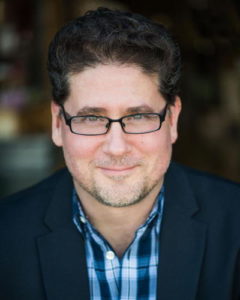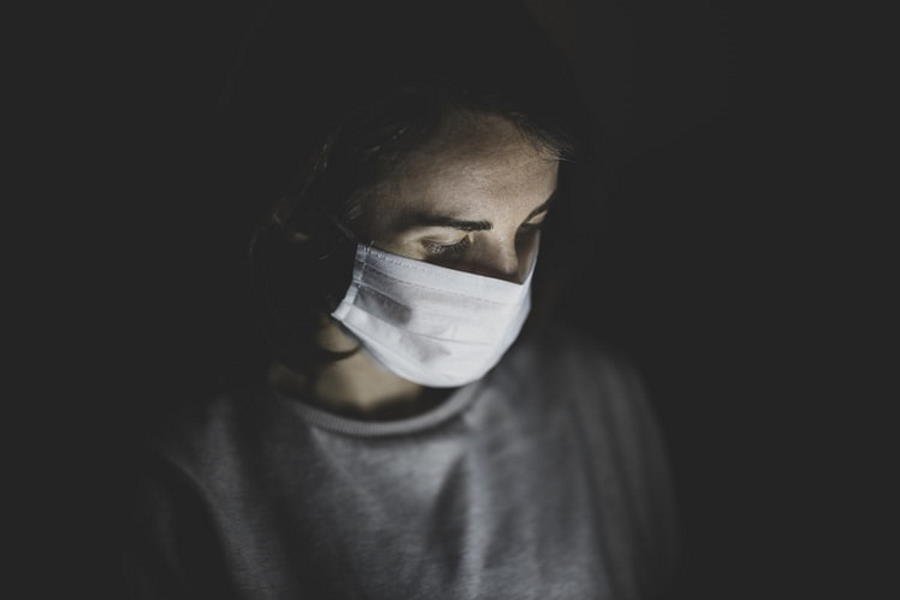When COVID-19 first ripped through the theatre community last spring, the consequences of having close-knit ensembles and staff rehearse and work in cramped spaces was widespread infection. Across the country, as people scrambled to get tests or flights back home, the New York theatre community rallied to raise money for the Actor’s Fund, provide digital entertainment to distract from bad news and boredom, and support and uplift those who were ill, hospitalized, or even lost someone to COVID.
More than a year later, nonprofit theatres from coast to coast have begun to announce in-person productions, Broadway shows are one-upping each other with reopening announcements, and artists are traveling to theatres outside of their cities for work again. For some folks, though, the initial battle with COVID has yet to be decisively won. And as the industry seeks to move forward full speed, those dealing with the effects of long-term COVID are left to catch their breath.
Some aspects of long-term COVID were anticipated by the medical community: If a patient needs to be on a ventilator and survives, for instance, scarring of the lungs is quite likely, and timetables for healing are individual and varied. But there are other factors of long-term COVID—officially called post-acute sequelae, or sequels to COVID, according to the National Institute of Health (NIH)—that have perplexed researchers, patients, and the public. Some who suffered only mild cases of COVID have found themselves still hampered by long-term syndromes months later. People who recovered a year ago may suddenly suffer extreme muscle weakness and can’t get out of bed. Just as COVID was initially so frightening because we did not yet understand it, long-term COVID is seeming just as elusive, and not many medical teams around the country are explicitly dedicated to its study.
As is common with many chronic illnesses whose research is underfunded, patients may take to self-diagnosis and support groups to navigate the everyday challenges of their disease or disorder. While anecdotes are not scientific proof, learning from someone suffering the same way you are can be as life-affirming as medicine; everyone I spoke to described a moment of connecting with other long-term COVID patients as confirmation that they’re not “making it up” or “crazy.”
Keith Andrews (he/him), a director and choreographer, created an informal support group for long-term patients as a way to bridge the isolation of the pandemic.

“I made a list of a bunch of friends and colleagues of mine and basically wrote to them and said, ‘Do you all want to get together on a Zoom call and just sort of talk about what’s going on?’” he said, describing his initial May 2020 effort. He wanted the group to be able to explore “what’s affecting you physically, but especially mentally, and technically, and how it’s affecting your career.” Because the nature of theatre directing can involve bouncing from job to job around the country, Andrews and the artists in his group already felt disconnected from one another before stay-at-home orders and travel restrictions. The virtual support group gave them a chance to “have a monthly meeting, see how everybody’s doing, and talk about how COVID’s affecting us, both physically and career-wise. We felt a little less alone.”
Career concerns have been a charged issue for artists with long-term COVID, as symptoms range from physically debilitating to psychologically confounding. Director Igor Goldin (he/him) has weathered challenges from chest pains to brain fog, sometimes forgetting his train of thought in the middle of a sentence and having to start over. He rapidly lost about 50 pounds, and though he noticed the weight loss correlated with the period he experienced extreme shortness of breath, his doctor was hesitant to link the two events, as the unknown factors of long-term COVID still outnumber the known. His doctor would nod his head on hearing Goldin’s symptoms and affirm that he’d heard similar descriptions from other patients, but told him there is not yet conclusive scientific data about long-term COVID. Goldin visited a cardiologist, then a pulmonologist, to make sure there weren’t other issues at play, and while the clear X-rays were a comfort to him, others felt more upset being told they were healthy on paper when they still felt so worn down. “It’s kind of scary, because you think you’re over something and it just keeps lingering,” Goldin, who caught COVID in March 2020 and tallied 28 days of severe initial illness, said. “It lives in you in a dormant state and rears its head when you least expect it.”
More than a year after first getting sick, Goldin and his doctor have now turned to smell and taste therapy to solve the mystery of why “everything tastes like soap.” When he forgets his words in the middle of a thought, he tries not to panic; when he feels he can’t breathe, especially on more humid days, he explains to the people around him that he’ll be okay in a minute. But the challenges of long-term COVID can feel somewhat embarrassing in the rehearsal room (virtual or otherwise) when artists look to Goldin for guidance and leadership. “It’s really starting to chip away at my confidence,” he admitted, adding that he came forward as a long-term patient on social media in part to remind others that they’re not alone and shed light on the mysteries surrounding the disease’s aftereffects. “There’s comfort in numbers,” he said. “You don’t want others to feel the way they feel but at the same time, you’re so happy to hear that someone else is feeling the same way you are.”
Enough people are suffering from both the physical and emotional effects of long-term COVID that the NIH secured Congressional funding in December 2020 to properly devote time and resources to its study. The PASC Initiative (short for post-acute sequelae of COVID) will focus on collecting and centralizing biological specimens, studying patients with long-term symptoms, and researching how PASC affects major organs. In March, Beth Israel Deaconess Medical Center, the hospital affiliated with Harvard Medical School, launched its Survivorship Program to document, study, and treat PASC patients and anyone whose COVID experience landed them in intensive care. The disparities in our healthcare system remain—Boston’s elite hospitals, for example, can be quite hard to secure appointments in if you don’t know the right people—but the allocation of resources specifically to post-COVID syndromes is a light at the end of the tunnel for those who aren’t yet getting better over time.
What remains to be seen is how the fast-paced theatre industry will respond to a condition that asks people to slow down, catch their breath, and regroup. Theatre artists and practitioners with chronic illnesses and disabilities have long documented how the industry is inaccessible or even unkind, and some patients fear losing opportunities they’ve gained because their physical abilities have changed and there is no known way to restore their bodies to pre-COVID health. One arts educator I spoke to, who at first thought he had developed springtime allergies for the first time until a colleague tested positive, has taken to practicing the trumpet more often to regain lung strength, but still struggles to get through vocal warmups with his students. Others have feared that employers would learn they caught COVID at work and resent them speaking out about their prolonged harsh experiences; the same arts educator asked to remain anonymous because he believes almost his entire department at his institution caught COVID from being in close contact with one another in March 2020.

No single arts institution can be blamed for the whirlwind disease vector of that fateful month—we did not yet know what we didn’t know—but the fear of losing your job is not new to the theatre field, nor has it been lessened by the pandemic. Recurring gigs and steady employment in the arts are harder to come by now than they were 18 months ago, and it’s possible that Americans will need booster COVID vaccines to get through cold and flu season in the fall. (Pharmaceutical companies, who stand to profit off the extra round of shots, say yes, but doctors aren’t sure yet.) Though theatres across the country are eager to return to in-person programming, there’s no telling if COVID will upend the industry again in the months to come.
It’s easy to see why theatre artists with PASC would be hesitant to come forward in a time of instability, especially as battles over health insurance and work requirements are still being fought in unions like Actors’ Equity. Throughout the pandemic, many people found a new work-life balance from the overall slowing down of the busy American work culture, and some hoped this more relaxed approach would carry over into a post-pandemic future. But weeks after the Centers for Disease Control and Prevention lifted mask recommendations and New York City lifted business capacity limits, life for many is returning to “normal” at lightning speed, whether it’s offices reopening or Broadway turning on the lights. The people left behind include those still recovering from COVID or struggling with PASC, those in parts of the country where vaccines are harder to come by, and the roughly 1 in 5 Americans who lost a loved one to COVID.
Though it’s a cliché that illness or a near-death experience can make you more appreciative of what you have, theatre artists with PASC recognize the value both of slowing down and of prioritizing self-care over work, even as they long to be in community with other artists again.
“I’ve already started to see the world coming back, and I’m thinking, are we going to lose these important lessons that we’ve learned?” Goldin asked, speaking of both a sense of work-life balance and the social changes that industries like theatre demanded at the height of the pandemic but didn’t always receive. Though he doesn’t want to “sugarcoat” his experience with COVID or PASC, Goldin did say it was almost a relief to have to focus on his own survival rather than fret about the pressures and many moving pieces of a career in the arts. Moving forward, he hopes he can focus on theatre that speaks to social change and collective human experiences about the time we’ve been through, remembering that not everyone has made it out alive and others are still in the thick of it.
“Life takes precedent,” he explained. “Humanity takes precedent.”
Amelia Merrill (she/her) is an editorial assistant for American Theatre. @ameliamerr_


